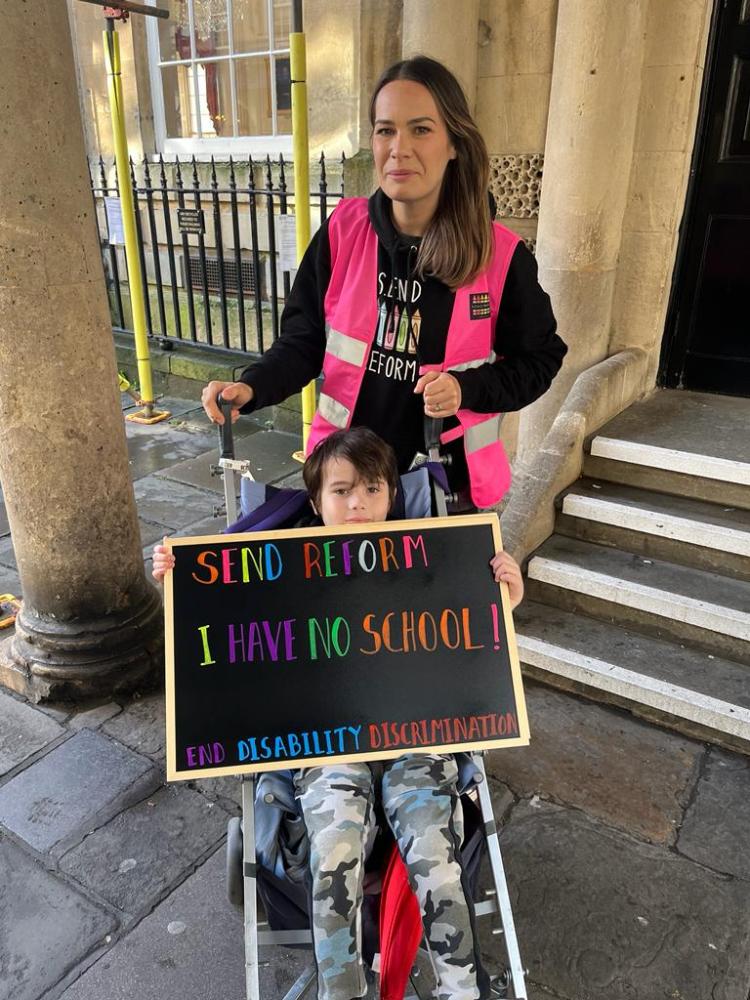Divorce is a major life event that can be emotionally and mentally draining. It's normal to feel overwhelmed, lost, and even hopeless after a divorce. However, it's important to remember that this period is also an opportunity for growth and self-discovery. You can support your healing process and confidently move forward by making positive lifestyle changes.
Here are six ways that lifestyle changes can help you heal after a divorce:
1. Seek Professional Support or Counseling
Seeking professional support is a critical step in navigating post-divorce emotions. A counselor or therapist can offer a safe space to discuss your feelings and experiences without judgment. They can provide coping strategies tailored to your circumstances and help you understand and process the emotions that come with ending a marriage.
Professional support often extends beyond emotional healing. Therapists can assist in setting goals for the future and creating a concrete plan for moving forward. This can include anything from career advice to guidance on managing co-parenting responsibilities, ensuring that each aspect of your post-divorce life is addressed.
Moreover, group counseling or support groups bring together individuals facing similar challenges. Sharing experiences with peers who understand what you're going through can be incredibly validating and comforting. It can reduce feelings of isolation and provide a sense of community as you heal.
In addition to emotional support, legal advice is fundamental in navigating post-divorce life. Consulting with a family law attorney can clarify legal obligations and rights. They can assist in untangling shared assets, advise on child custody arrangements, and ensure that agreements are fair and enforceable. Access to Professional Family Law Advice protects your interests and facilitates a smoother transition into the next chapter of life by reducing unnecessary conflict and misunderstandings. The support of a legal professional can help you feel empowered as you navigate this new stage in your life.
2. Prioritize Self-Care
Self-care is vital in the aftermath of a divorce. It's a time when prioritizing your well-being is beneficial and necessary. Self-care involves engaging in activities that nurture and replenish your physical, emotional, and mental health. This can range from ensuring sufficient sleep to indulging in hobbies that bring joy and relaxation. Remember that self-care is not a luxury but essential to healing and rebuilding your life.
Moreover, regular physical activity serves as a cornerstone to effective self-care. Exercise releases endorphins, the body's natural mood lifters, which can be especially helpful for managing stress and combating depressive symptoms post-divorce. Whether it's a daily walk, a yoga class, or a high-intensity workout, find an activity you enjoy and make it a regular part of your routine.
Nutrition also plays a critical role in self-care. Divorce can often lead to neglect of dietary needs, either by undereating or reaching for comfort foods. Prioritizing a balanced diet rich in fruits, vegetables, lean proteins, and whole grains can bolster your physical health and improve your mood and cognitive functions. Cooking can even become a therapeutic hobby, offering a sense of accomplishment and a way to care for yourself.
Lastly, pay attention to the importance of social self-care. Reconnecting with old friends, making new ones, or spending quality time with family members can help ward off loneliness and provide emotional support. Social interactions can bring laughter and conversation and a reminder that there is a life filled with meaningful relationships beyond your divorce. Engage in social activities that feel right for you without pressure to meet new partners until you are ready.
3. Establish a Routine
Creating a structured daily routine is instrumental in regaining a sense of normalcy and control after a divorce. A predictable routine can provide comfort during times of change, providing a framework for your day that doesn't rely on your former spouse.
Start by setting regular wake-ups and bedtimes to regulate your sleep cycle, which is often disrupted during stressful life events. Consistent sleep patterns contribute to better mental and physical well-being. Additionally, schedule regular meal times to ensure you're nourishing your body with the energy it needs to face the day.
Incorporate time blocks for work, exercise, self-care, and hobbies into your routine. Having specific times allocated for certain activities can help you manage your time more efficiently and prevent the feeling of aimlessness accompanying major life changes. A routine shouldn't be rigid but allow flexibility when unexpected events occur, or you need a break.
For parents, establishing a routine is also crucial for their children's stability and security. Consistency in daily schedules, rules, and discipline can help children adjust to the changes in their family dynamics. Both parents need to coordinate and maintain a consistent routine for their children to minimize confusion and provide a unified front.
4. Reconnect with Joyful Activities
After a divorce, it's common to feel like you've lost a sense of identity and purpose. However, this is also an opportunity to rediscover what brings you joy and fulfillment. You may have enjoyed hobbies or activities before your marriage but didn't have time for them during the relationship. Or there are new interests you've always wanted to explore. Use this time to reconnect with these activities and discover new passions.
Engaging in enjoyable activities can provide a much-needed sense of purpose and accomplishment. It also offers an opportunity for personal growth and self-discovery as you learn more about yourself outside of the context of your former relationship.
Furthermore, participating in social or volunteer activities can expand your support network and allow you to give back to your community. Helping others can be incredibly fulfilling and bring meaning and purpose to your life.
5. Adopt Healthy Coping Strategies
Adopting healthy coping strategies is crucial for healing after a divorce. This involves finding constructive ways to manage stress and emotional pain. Mindfulness meditation and deep breathing exercises can reduce anxiety and promote relaxation. Journaling is also effective, providing a private outlet to process thoughts and feelings.
To cope healthily, it's important to avoid unhealthy behaviors like excessive drinking, overeating, or isolation. Instead, focus on building a supportive network of friends and family or connect with others through community events or interest groups. This network will provide companionship and support during tough times and help you stay accountable for your healing progress.
Embrace laughter and find joy in everyday activities. Laughter has therapeutic effects, boosting spirits and the immune system. Engage in activities that make you smile, like watching a funny movie, playing with pets, or spending time with children. By incorporating positive experiences into daily life, you can create a buffer against the stresses of post-divorce adjustment.
6. Practice Mindfulness and Gratitude
During a divorce, ruminating on the past and worrying about the future is natural. However, this can lead to increased stress and anxiety. Practicing mindfulness techniques can help manage these thoughts by bringing attention to the present moment.
Mindfulness involves taking note of your surroundings or focusing on your breath and body sensations. It allows you to observe your thoughts without judgment and be present in the moment. This practice can help reduce stress, improve emotional regulation, and create a sense of calm.
Gratitude is equally crucial for promoting positive thoughts and feelings. It involves acknowledging what you have to be thankful for, no matter how small or simple it may seem. Practicing gratitude can shift your mindset from loss to abundance and promote resilience as you navigate post-divorce life.
Frequently Asked Questions
How long should I attend counseling or therapy after my divorce?
The duration of counseling or therapy is a personal decision and can vary based on individual needs. It's important to continue until you have developed the coping strategies and support systems necessary for your new life. Some people attend for a few months, while others may find it beneficial for a longer period.
What are some effective ways to integrate exercise into a post-divorce routine?
Start by choosing activities you enjoy, making it easier to stick with your exercise routine. You can also set specific fitness goals, schedule regular workouts, or find an exercise buddy for motivation. Incorporating activities like walking, jogging, or attending fitness classes can be effective ways to exercise regularly.
How can I help my children adapt to the post-divorce changes?
Maintain open communication with your children, providing reassurance and allowing them to express their feelings. Keep their routine consistent regarding school, extracurricular activities, and time spent with both parents. Seeking professional help for your children can also support them through the transition.
Is it necessary to change my social circle after a divorce?
While it's unnecessary to completely change your social circle, evaluating relationships and spending time with people who provide positive support is often beneficial. Branching out and making new connections can introduce fresh perspectives and help you move forward. However, keeping old, supportive, and understanding friends can also be very helpful.
Life after divorce may be challenging, but it can also mark the beginning of a profound personal transformation. As you embark on this journey, remember that healing is not a destination but a process, and taking it one step at a time is ok. Embrace these lifestyle changes as tools to help you navigate the path ahead with resilience and hope. Remember to share your thoughts and any additional strategies that have helped you heal after divorce in the comments below. Your insights could be the very thing someone else needs to hear. Stay strong, stay positive, and forge ahead towards a brighter future.






